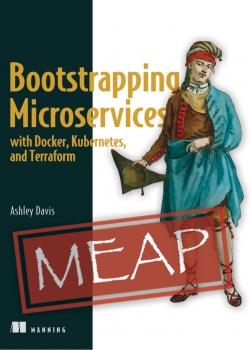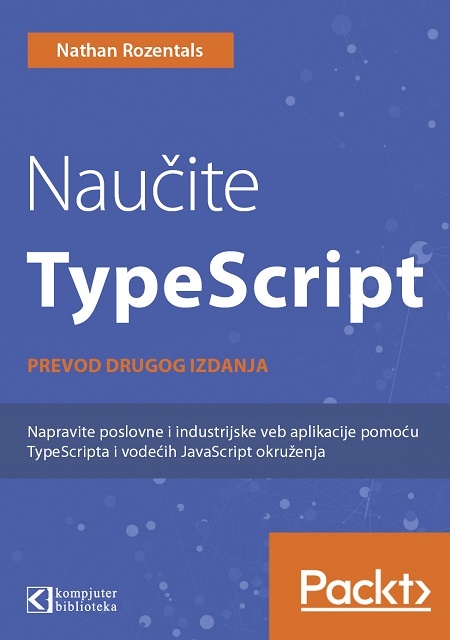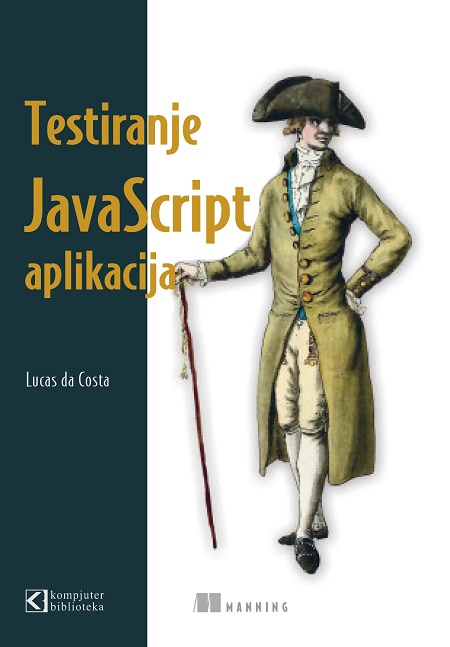
Autor: Ashley Davis
Broj strana: 325
ISBN broj: 9781617297212
Izdavač:
MANNING PUBLICATIONS ![]()
Godina izdanja: 2019.
 |
 |
 |
 |
 |
||||
The best way to learn microservices development is to build something! Bootstrapping Microservices with Docker, Kubernetes, and Terraform guides you from zero though to a complete microservices project, including fast prototyping, development, and deployment. You’ll get your feet wet using industry-standard tools as you learn and practice the practical skills you’ll use for every microservices application. Following a true bootstrapping approach, you’ll begin with a simple, familiar application and build up your knowledge and skills as you create and deploy a real microservices project.
1.1 This book is practical
1.2 What is a microservice?
1.3 What is a microservices application?
1.4 What’s wrong with the monolith?
1.5 Why are microservices popular now?
1.6 Benefits of microservices
1.7 Drawbacks of microservices
1.8 Modern tooling for microservices
1.9 Designing a microservices application
1.10 An example application
1.11 Getting more information
1.12 Summary
2.1 New tools
2.2 Getting the code
2.3 Why Node.js?
2.4 Our philosophy of development
2.5 Establishing our single-service development environment
2.5.1 Installing git
2.5.2 Cloning the code repo
2.5.3 Get Visual Studio Code
2.5.4 Installing Node.js
2.6 Building a HTTP server for video streaming
2.6.1 Creating a Node.js project
2.6.2 Installing Express
2.6.3 The Express boilerplate
2.6.4 Running our simple web server
2.6.5 Adding streaming video
2.6.6 Microservice configuration
2.6.7 Set up for production
2.6.8 Live reload for fast iteration
2.6.9 Running the finished code from this chapter
2.7 Node.js review
2.8 Where to go for more information
2.9 Summary
Microservices have become a standard architecture for established enterprises and startups alike. Although microservice designs can be complex, Docker, Kubernetes, and Terraform are the tools that make microservices applications accessible and cost-effective, providing the means to package, manage, and deploy microservices applications of any size. Bootstrapping Microservices with Docker, Kubernetes, and Terraform gradually builds up your skills with these powerful tools, allowing you to increase your knowledge and capability in stages as you build a real application from the ground up.
In Bootstrapping Microservices with Docker, Kubernetes, and Terraform, 20-year software veteran Ashley Davis lays out his practical approach to microservices. There’s no unnecessary theory—just working examples, and hands-on learning that you can use to build a useful application! Chapter by chapter, you’ll follow the construction of a video streaming application, unlocking how specific technologies are used in the microservices development process. You’ll learn how to create cloud infrastructure with Terraform, how to configure and package microservices using Docker, and how to deploy a microservice application on a Kubernetes cluster. When you’re finished with this engaging project, you’ll have all the skills you need to start building and deploying microservices to your own infrastructure.
Creating, configuring and packaging a microservice using Docker Developing and testing a microservices application using Docker-Compose Applying automated testing to microservices Using Terraform to implement infrastructure-as-code and setup a continuous delivery pipeline Building a Kubernetes cluster to host your microservices Monitoring, managing and troubleshooting a microservices application
For developers with experience building web applications.
Ashley Davis is a software developer, entrepreneur, author, and stock trader. Ashley is CTO of Sortal, a startup that helps businesses manage their digital assets with artificial intelligence. Ashley is the creator of Data-Forge and Data-Forge Notebook, software for data transformation, analysis, and visualization in JavaScript. Ashley is the author of Manning’s Data Wrangling with JavaScript.
Budite prvi koji će ostaviti komentar.

Popust cena:
2200.00 rsd

Popust cena:
1800.00 rsd
© Sva prava pridržana, Kompjuter biblioteka, Beograd, Obalskih radnika 4a, Telefon: +381 11 252 0 272 |
||